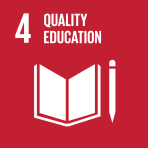Abstract
The purpose of this study is to map the empirical and theoretical evidence of children’s ability for ‘relaxing’ as a core capacity for life within the Learning for Well-Being Foundation’s (L4WB) theoretical framework, and how it interacts with overall child development (ages 0–18). More specifically, this review aims to contribute to existing knowledge in three ways: (i) it adds to the evidence of relaxing as a core capacity for children from a childhood development perspective, (ii) it assesses the interaction of relaxing with other core capacities and with overall child well-being, and (iii) it looks at the development of relaxing as a core capacity among significant adults in children’s lives (e.g., teachers, educators, parents) who are involved in their care and their skills development. Although the available evidence is limited, results show that ‘relaxing’ (and its related proxy concepts of mindfulness, meditation, contemplative science) can be helpfully considered a core capacity according to some aspects of L4WB definition: i) it can be developed through training and practice; ii) it can impact positively on children’s life through the reinforcement of cognitive, personal and interpersonal skills (e.g., improvements in executive functioning and empathy); and iii) it enables children to cope effectively with stress by improving their well-being.
- 25 Apr 2022




